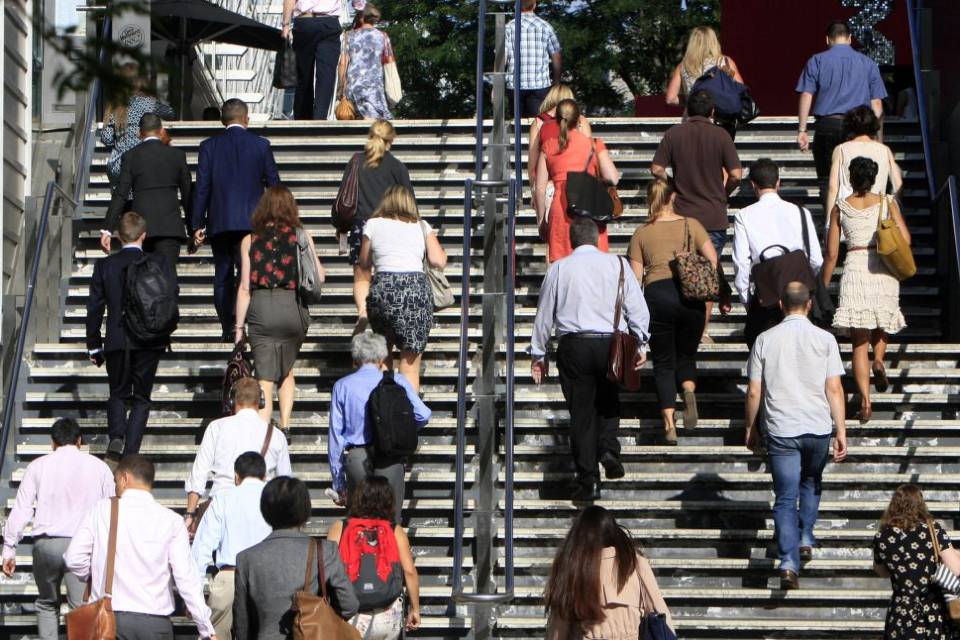Returning to the office is set to ignite a post-pandemic fashion boom, as more than half of UK workers plan to refresh their work wardrobe.
The average worker is preparing to spend nearly £200 each on new work clothes in the next month – to celebrate the end of lockdown and getting back into an office space.
But 38 per cent admit that working from home comfort is going to be hard to forget, as they’ll be buying ‘comfortable clothes’ for their office re-entry.
Hybrid working is also set to become the norm, with 62 per cent of the 2,000 office workers polled planning to mix home and office working in the future.
The research was commissioned by TOG (The Office Group) to mark the launch of Liberty House, the group’s latest flexible workspace opposite the Liberty London department store in Soho’s fashion district. Nasim Köerting, head of design at TOG, said: “Our research shows that people are largely looking forward to the return to the office, and after a year of low-key dressing, this time will be exciting for many workers, offering them the chance to express themselves through their outfits.
“And just as workers will be seeking fashionable office outfits, so they should demand the same style and inspiring design from their workspaces – as good design fosters productivity, creativity and collaboration.”
The study found that a year of remote working has had a lasting impact on the nation’s sartorial choices, with 38 per cent of workers looking to retain the feeling of ‘comfort’ achieved through the dressed-down approach that typified lockdown. This sentiment extends to their post-lockdown office demands, as 22 per cent now want their workplaces to have a ‘home from home’ feel.
Just 12 per cent of adults plan to return to a traditional, formal office look once synonymous with the nine-to-five. Instead, 72 per cent will adopt a ‘smart casual’ look, and 29 per cent are looking to be more experimental and ‘playful’ with their post-pandemic style. But more than third of those polled via OnePoll feel happier at work when dressing to suit their own style, and a quarter believe dressing for work on their own terms makes them more productive.
To explore the findings in more detail, TOG partnered with behavioural psychologist and author of ‘The Psychology of Fashion’ Carolyn Mair. Together they compiled a report exploring how the pandemic has shaped the nation’s sartorial choices when it comes to work, identifying what the future holds as we enter the next phase of ‘the new normal’.
Mair said: “Many workplace fashion trends have historically been typified by more formal dress codes, signifying a clear division between the home and the office. Post-lockdown, what constitutes workwear is likely to become altogether more fluid and versatile, with suits and heels replaced by more casual and comfortable fashion. That being said, what constitutes ‘appropriate’ workwear varies depending on many factors, including the job role and environment.
“The pandemic has seen workers become accustomed to choosing their own, more relaxed clothing to WFH, and with TOG’s research showing that over a third will prioritise comfort dressing post-COVID, this could become a long-lasting trend in workplace fashion.”
To download and read the full report visit https://www.theofficegroup.com/future-of-workplace-fashion















